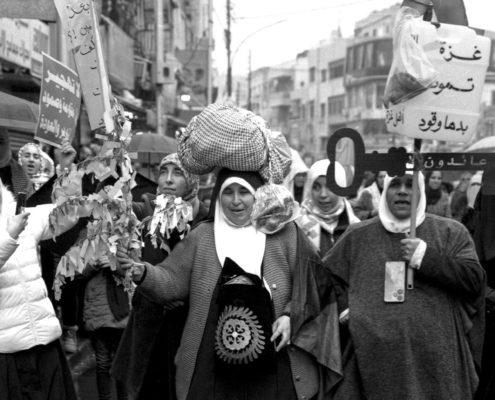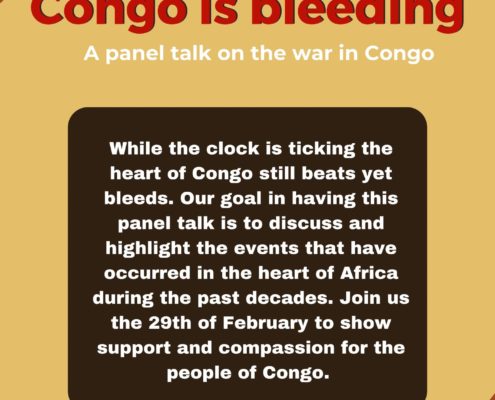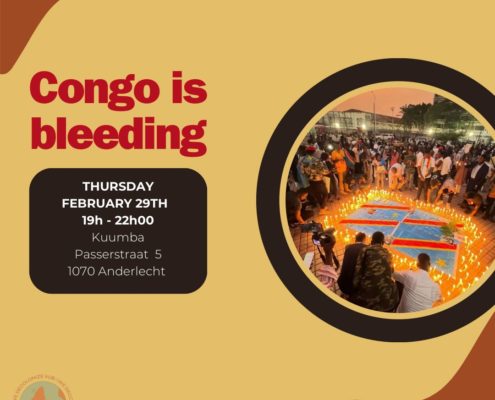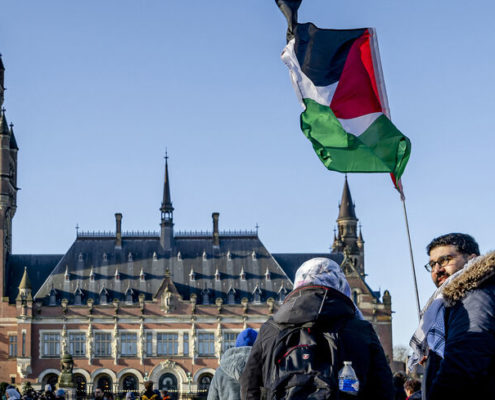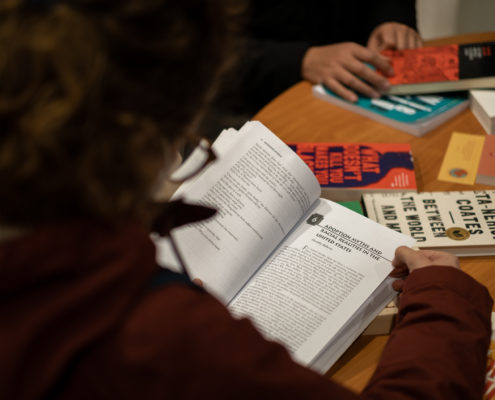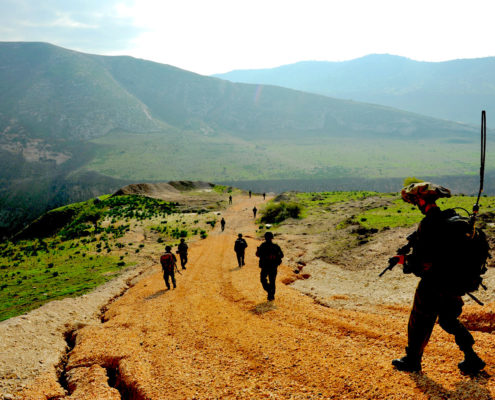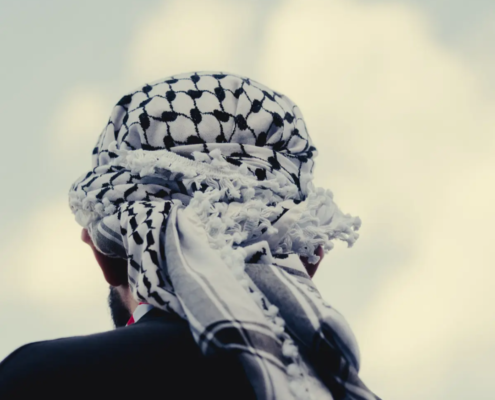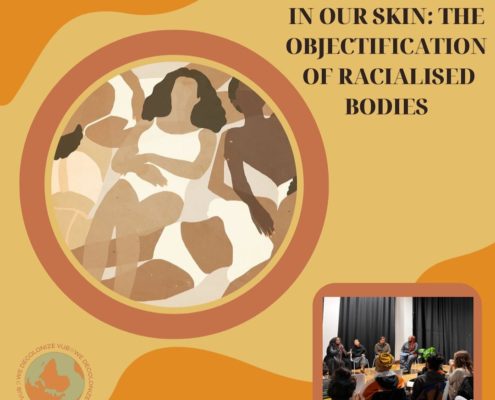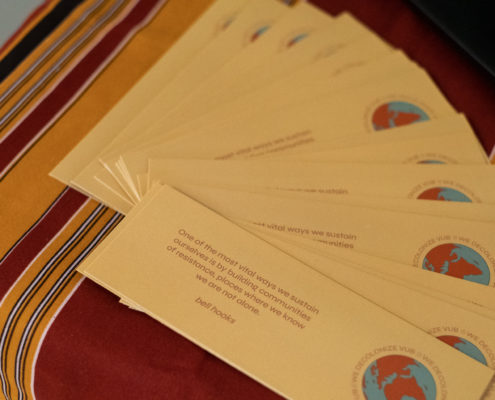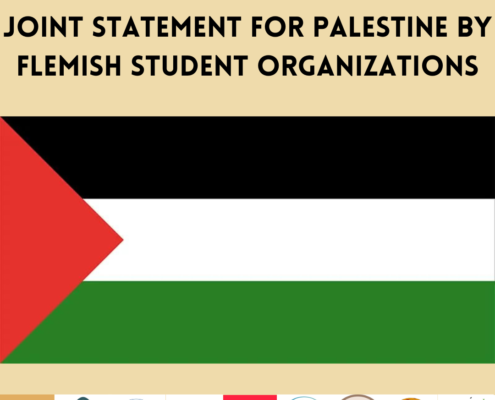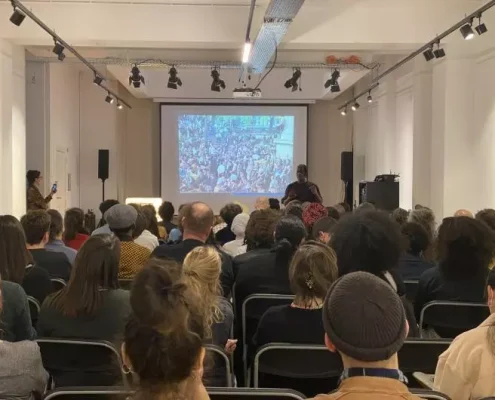Women’s Day under bombardment
A Feminist Call to Strike for Gaza and the decolonizing of International Women’s Day
Ghassan Bardawil
08.03.2024
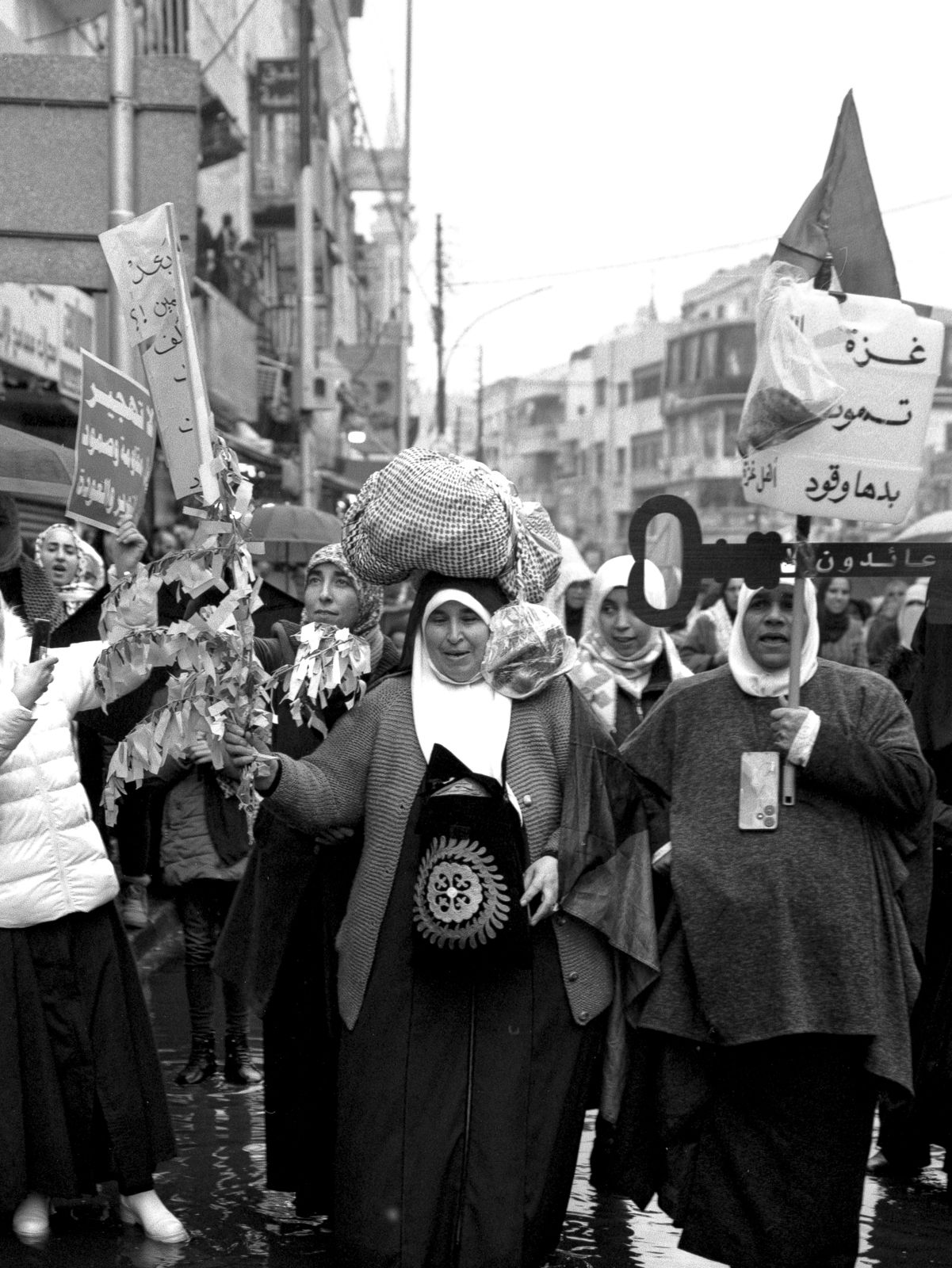
Today, on the 115th iteration of International Women’s Day, 63 women will be martyred in Gaza. 37 of them are mothers, many leaving behind families in dire conditions, and some with no families left to remember them.
More than 9,000 Gazan women have been martyred since the beginning of Israel’s brutal assault on Gaza. These estimates are conservative; they exclude all the women dying of starvation and diseases across the strip, as well as all the victims still under the rubbles. 60,000 women in Gaza are pregnant, babies are delivered under airstrikes and c-sections performed without anaesthetics or proper sanitary conditions.
The horrifying attacks and gruesome conditions in Gaza right now, and the world’s benign response, bring a different meaning to this year’s International Women’s day. Instead of celebrating, many of us are mourning. In commemorating the countless women suffering in Gaza right now, and in the continued struggle for women’s rights and gender liberation, we have the duty to raise our voices in the discourse around feminism, gender, colonialism, and liberation. More importantly, we must heed the call of the Palestinian women of Gaza and amplify their voices!
Decolonizing International Women’s Day
Modern expressions of Women’s Day, and by extension the broader feminist movement, often present a fractal mirror of the broader liberal-washing of feminist action and rights movements. Not only drawn from euro-centric and colonial foundations but also often are watered down by modern corporatism and racism. The struggle to decolonize Women’s Day is built upon the universality of the colonial experience and intersectionality between liberation movements. In this effort, it is vital to contextualize this history, and to step past the western-dominated and primarily American narrative. Decolonial and feminist scholars have repeatedly iterated the necessity for peeling back the layers of a conventional and simplified narrative in order to understand and correctly utilize the power of the womens movement for global reform.
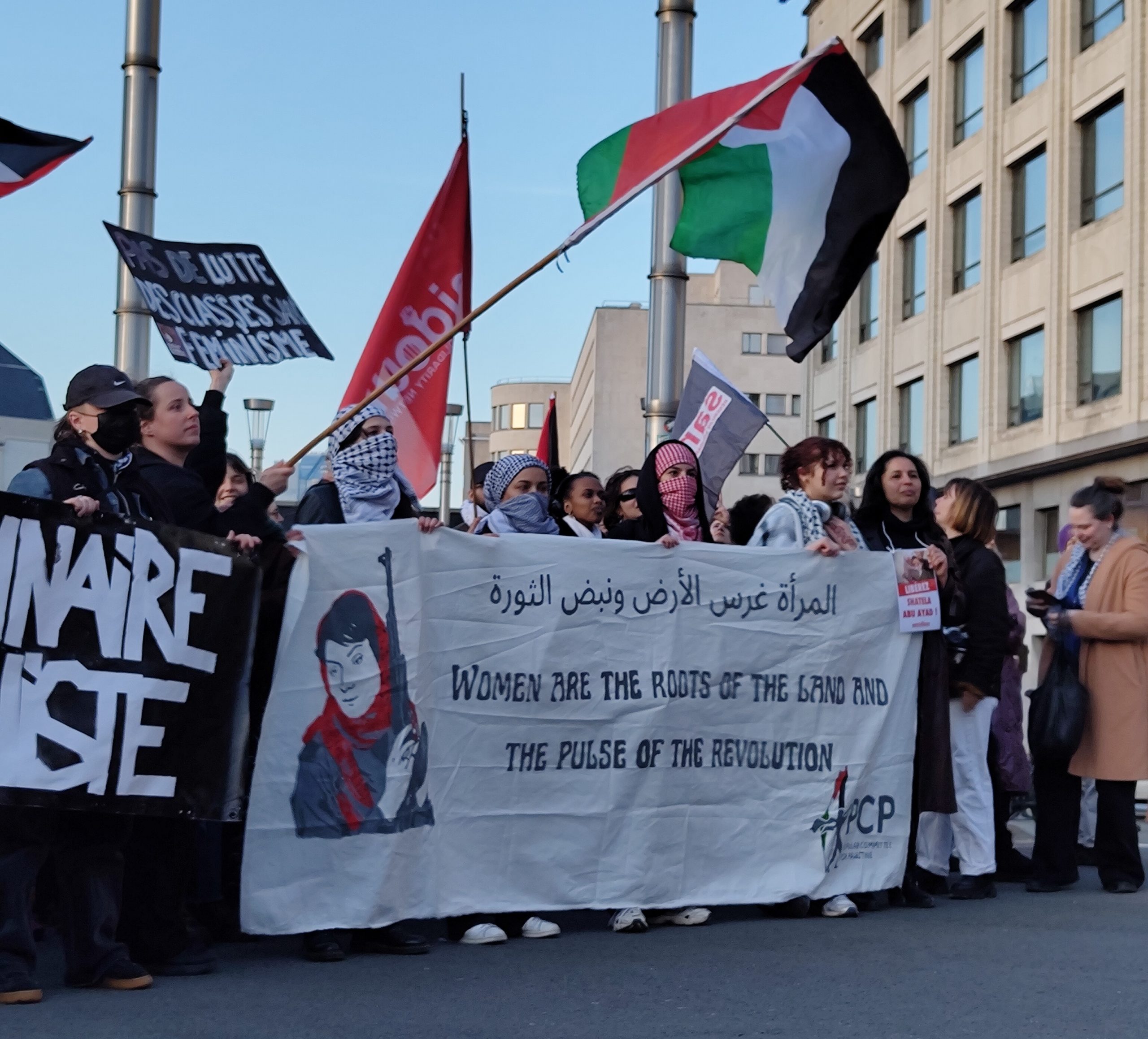
The roots of western women’s rights movements sprout from workers movements and labor activism, many of which were directly criminalized, forcibly dispersed, and vilified during the cold war era and after. International Womens Day is often attributed to the suffragettes and womens workers movements in the early 1900’s USA. The Socialist Party of America organized the first reported “Womens Day” on february 28, 1909, inspiring the German delegation at the 1910 International Socialist Women’s Conference to propose an annual Women’s Day. After the newly formed Soviet Union dedicated March 8th a national holiday for IWD, many and communist countries and socialist movements adopted this decision leading to a chain reaction. By the late 1960’s March 8th had become the global standard and was adopted by the global feminist movement, and by 1977 observation of the holiday was promoted by the United Nations. Corporatization and capitalist-driven governance have shifted the foundational meanings and goals underlying the movement. Pioneers of the US black feminist movement like Angela Davis and her peers often point to the linguistic change from “rights” to “freedoms” in order to highlight this shift. Demands for ‘reproductive rights’ for example became ‘reproductive freedoms’ because of the dominance of individualism in capitalist-driven society.
Critically, countless black and brown women and non-conforming people have shaped the landscape of gender identity, sexual rights, and bodily integrity. In decolonizing IWD it’s not only crucial to highlight the euro-centricity of contemporary feminism, but more critically, to deconstruct the narrative that women’s rights movements originate in the west and spilled over onto the rest of the world. Colonial histories only concede to western definitions of social struggle, thus colonial histories of feminism can only take into account the battle against western forms of patriarchy which were exported to the global south through colonial exploitation. Feminist and women’s rights movements in the third world have a long history of battling their indigenous patriarchal norms long before being forced to face the imported white patriarchies alongside.
Contemporary decolonial feminism posits primarily that there can be no decoloniality without the undoing of modern gender norms and perceptions, and vice versa. Subjugation under layers of discrimination and dehumanization necessitates an intersectional perspective on liberation. Women’s movements under colonialism never had the luxury to view feminism as an isolated form of inequity, feminist reform would demand social and political autonomy which had to be wrestled back from colonial structures. The intertwining of liberation movements is necessitated by the intertwining of the mechanisms of oppression, intersectionality is not a choice but an absolute. Because of this, feminist movements which sprout from colonized social landscapes have an absolute and explicit investment in the broader liberation of non-women from colonialism, capitalism, and patriarchy.
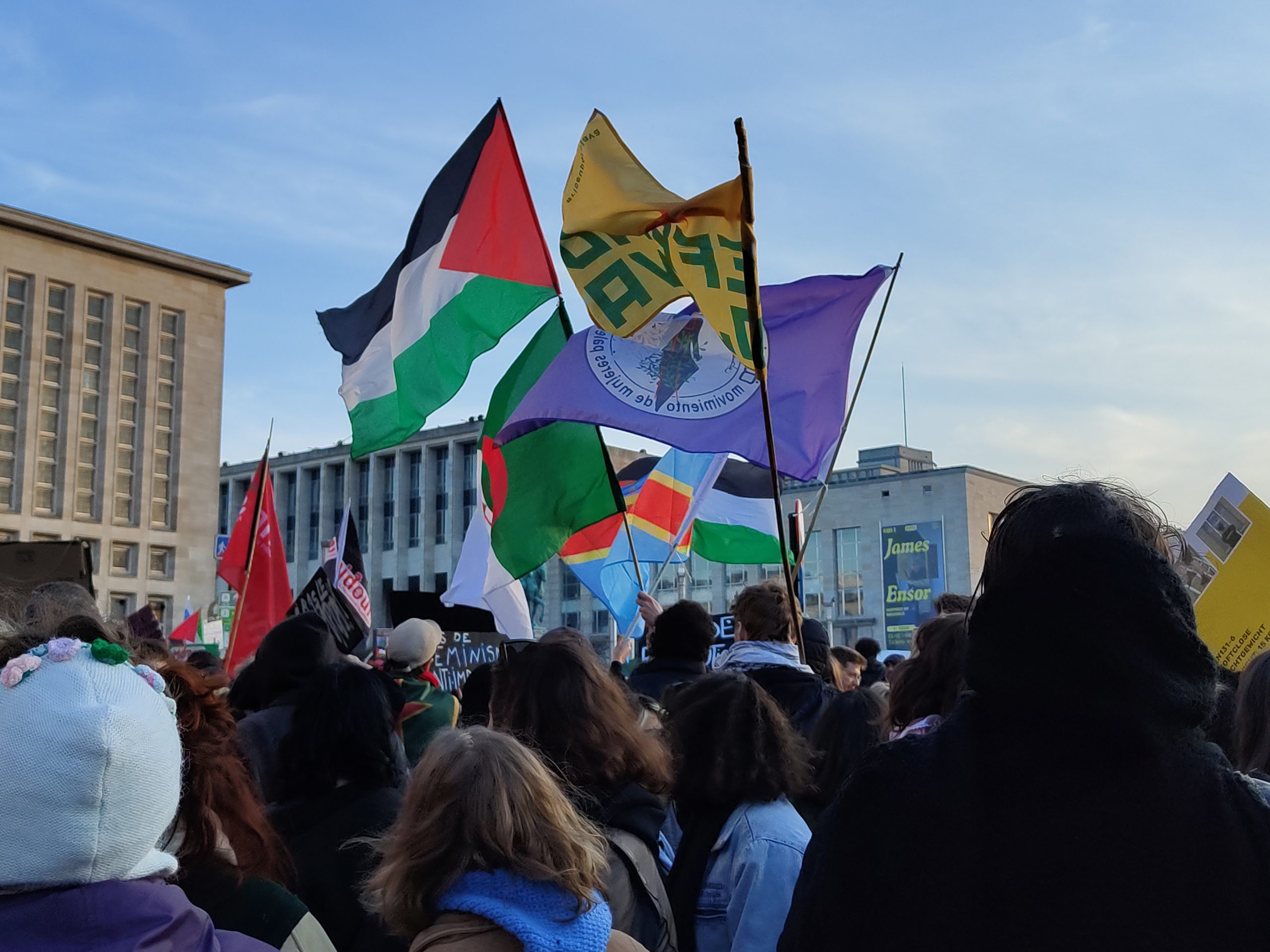

Women’s organizing in Palestine has a documented history going back into the late 1800’s, with a legacy of over a century and a half of feminist and anti-colonial action. Palestinian women’s societies and associations have been active, and commonplace, since the dawn of the 20th century. Today, feminist actions and women’s movements are an integral part of the history of the Palestinian struggle for liberation. A liberated Palestine is hinged not only on the dissolution of the zionist occupation but also on the liberation of Palestinian women, queer, and non-conforming people. Further, and more critically, “there can be no feminist struggle without the women of Gaza”.
“For decades, Palestinian feminists have resisted Israel’s masculinist and militarized siege of Palestinian land and life. Since its inception, the Zionist settler colonial project has hinged on the expulsion of Palestinians from their homes and land, creating generations of landless Palestinian refugees. Zionist violence continues to dominate Palestinian lives in intimate ways. Throughout the homeland, Israel demolishes Palestinian homes, subjects Palestinian prisoners of conscience to systematic sexual and physical abuse and torture, and polices Palestinian bodies, sexualities, reproductive rights, and family life. Palestinians continue to affirm life in the face of the enduring Nakba (catastrophe), which takes place through deadly closure in the Gaza Strip, military occupation in the West Bank, legal designations of second-class citizenship in the settler state, exile in refugee camps and across the shatat (global diaspora), and denial of the right to return home.“
-Palestinian Feminist Collective; Pledge that Palestine is a Feminist issue
A Feminist Call to Strike for Gaza
“No feminist struggle without Gaza
From the women of Gaza to the feminist and revolutionary forces worldwide, as March 8th approaches, it represents a truly revolutionary occasion where the systems oppressing women, queers, and their intersectional issues can be confronted. Still, it also offers a litmus test for international anti-colonial feminism, as well as its ability to transform theoretical principles into tangible actions and utilize political activism as a tool to dismantle these oppressive systems.
Surrendering to the relentless Zionist killing machine is not an option. Therefore, this year’s March 8th must be seized as an opportunity for feminist and revolutionary escalation in support of Gaza and in support of its women and all diverse groups that constitute its social fabric.
Therefore, we call upon you to join us in an urgent international action, declaring March 8th as a Global Strike Day for the Palestinian women of Gaza and their people, centring their stories, histories, and struggles as a driving force for action on this day.
We acknowledge that striking requires grassroots organisational action and a strategic timeline capable of achieving its goals of shaking the economies of capitalist-imperialist nations and their interests that support the massacres in Gaza. However, we also recognize that feminist protests will surge across cities globally, and we affirm our rejection of the domination of the voice of colonialism over these protests or the “feminist voices” that have exploited women’s rights and issues as fuel for the ongoing genocide in Gaza, justifying it and pinkwashing Israel’s crimes. We also reject their disregard and blindness to the bloodshed of Palestinian women.
We understand that the contexts of feminist action vary according to the oppression under which it blossoms. Hence, we do not confine this day’s activist efforts to the streets alone. Feminist resistance has devised multiple ways to connect the public sphere with the private, innovating new methods to link struggles with the conditions and contexts of women confined to their homes and under the military siege of occupation and tyranny.
This is our wager: that oppressed groups, confined within walls and stretched across oceans, continents, and barbed-wire borders, will unite to proclaim that both within our homes and on the streets, “Solidarity with Gaza is our means of resistance”. Breaking through the isolating and symbolic barriers with all that we possess, even if it’s merely a letter that defies colonialism.
Join us on March 8th and organise with us for a global strike that will shake the thrones of the patriarchal and colonial systems. Mobilize with us the revolutionary forces that are ready to take the lead in transforming this day into a revolt against patriarchy, genocide, capitalism, and colonialism by all means possible. Through protests, sit-ins, strikes from all forms of work, both paid and unpaid, boycotting purchases and daily activities that profit the economic system, call for an arms embargo on the Zionist entity, intensify efforts seeking to prevent and disrupt the supply of weapons to it, taking platforms to speak about the Palestinian women of Gaza, blogging and writing on social media, and spreading tweets, flyers, or images bearing messages of solidarity with Gaza. Let this day be an escalation in the struggle against the genocidal war on Gaza and the Zionist settler colonial project in Palestine. Join the strike and rattle the globe in the days ahead, spurring action and affirming the incontestable fact that there can be no feminist struggle without the women of Gaza.
No feminist struggle without Gaza
No future without Gaza“
You can find the original call, and many translations, here
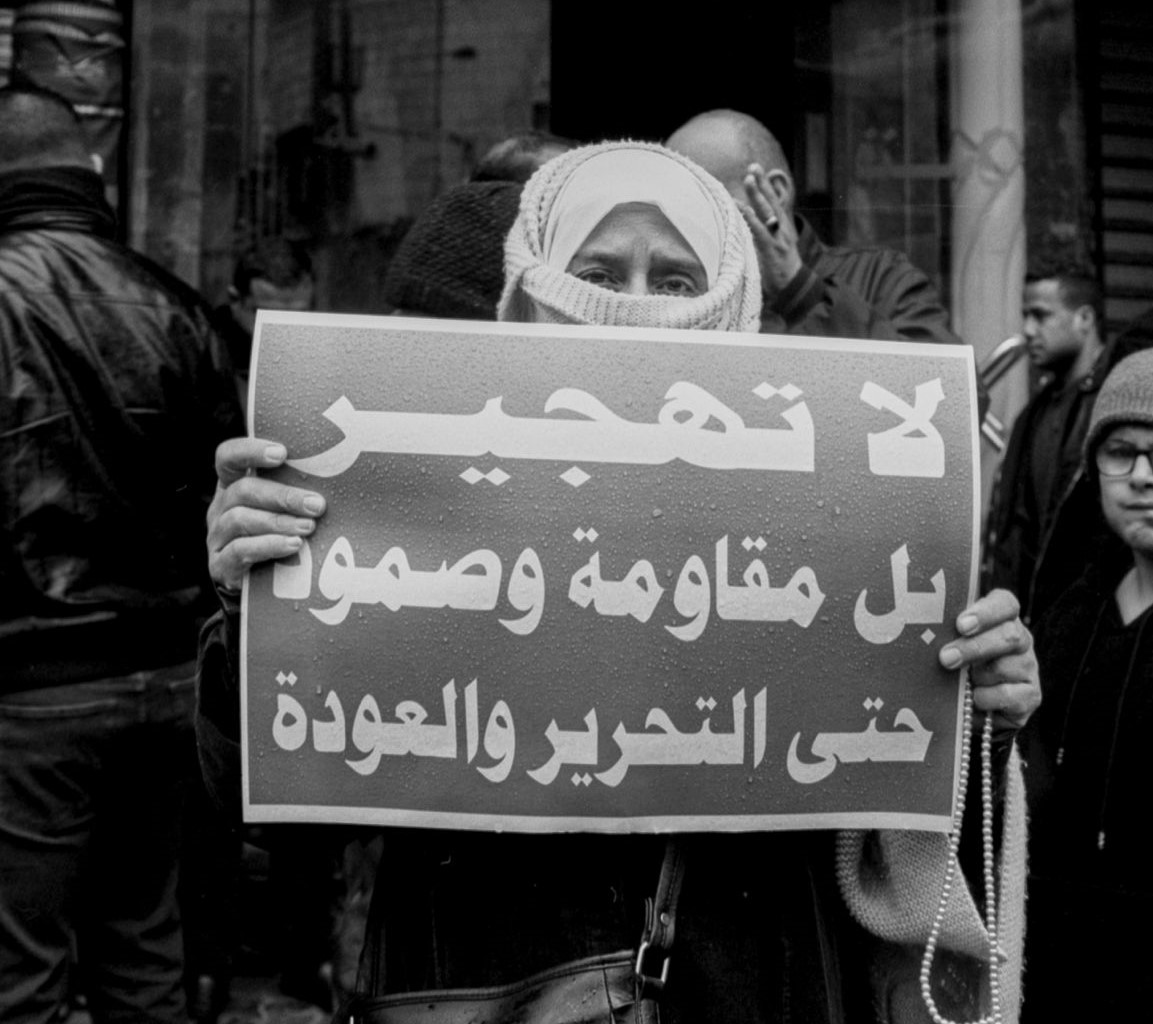
Heeding the call
This year, it’s crucial that we amplify and heed the call of Palestinian women in Gaza. It is not only crucial for the women of Gaza but for all the women and gender non-conforming people who are subjugated by colonial, patriarchal, and capitalist structures. “Join the strike and rattle the globe in the days ahead, spurring action and affirming the incontestable fact that there can be no feminist struggle without the women of Gaza.”
Keep your eye on WeDecolonizeVUB’s social media, as well as VUB Palestine Solidarity Network and Association belgo-palestinienne, to stay updated on actions and movements on campus and in the city!



